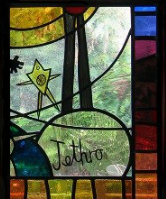Trόpos. Rivista di Ermeneutica e critica filosofica
ed. by Gianni Vattimo and Gaetano Chiurazzi
2020, n. 1
CALL FOR PAPERS
The Future as a Problem. Between Philosophy and Cultural Studies
Edited by Daina Habdankaitė and Davide Sisto
The upcoming issue of Tropos will be dedicated to the concept of future, with a view to reconstructing its peculiar hermeneutics, which is, its theoretical meaning and many nuances.
The topics include but are not limited to:
- Future and technology: political, social and ethical problematics;
- Ontology of the future: classic and contemporary approaches;
- Virtuality and/or possibility in theory and/or in praxis;
- The future of philosophy as a philosophical problem.
Deadlines
Submission deadline: March 31, 2020
Results of blind reviews: April 30, 2020
Publication date: July 2020
Submission Guidelines
Papers should be submitted to:
- Daina Habdankaitė: d.habdankaite AT gmail.com
- Davide Sisto: da.sisto AT gmail.com
- Papers should be in English, French, or Italian.
- Papers should be prepared for blind review (double)
- Each submission should consist of two separate documents containing the following:
1) The full paper including:
- Title
- The full paper should not exceed 50,000 characters in total.
- An abstract of no more than 200 words - also including an English title
- 5 keywords
2) A separate cover letter including the following information:
- The title of the paper
- Your name, affiliation and contact information
- A biographical presentation of 50-60 words.
Presentation of the topic
A quick glance at the current political, social, technological and artistic reality reveals increasing popularity of the discourse about the future which is reconceptualized and scrutinized from both theoretical and practical approaches. As soon as it enters the theoretical field, the question of the future becomes a question of the future of philosophy, to the point that it has been said that the future of philosophy itself might be the philosophy of technology (J. C. Pitt). There is a prominent idea that the technological future will cause a revolution in interpersonal relations: the increasingly frequent interaction with AI (vocal assistants, chatbots, etc.) is generating new relationships between human beings and robots, causing problems that are still unclear, but are starting to attract the attention of scholars and researchers.
The omnipresence of digital objects, especially within social networks, has often determined a pathological nostalgia for the past: when the past tends to overlap with the present, making itself indistinguishable from the latter, we tend to look back and to not look in front of us. The inability to distinguish the present from the past is also connected to the modus essendi of contemporary neoliberalism, which in the name of "there is no alternative" forces us to spend all our energy in recovering the past: we would be not able to build a new future anymore since it appears impossible to be done a priori.
This tendency, according to which we refuse the unusual and keep alive the usual, has been described, in the context of Cultural Studies, as retromania (S. Reynolds), or as slow cancellation of the future (M. Fisher, F. Bifo Berardi) This general pessimism is also connected to the idea that we are approaching the end of the world. The economic and the environmental crisis, combined with the eternal and suffocating presence of the past, are determining the spread of apocalyptic philosophies that, starting from the cosmic pessimism of G. Anders, stress that the end of humanity is near (D. Danowski; E. Viveiros de Castro; E. Thacker; J. Bridle), or even that the end of the Earth itself is coming, to the point that the even the bringing a new life to the world is questioned from the moral standpoint (D. Benatar; T. Ligotti).
On the other hand, an optimistic view of our technological future can be also encountered. The present age focused on technological and digital enhancement has produced the diffusion of transhumanist ideas revolving around the vision of the entire humanity soon gaining access to the eternal life, sometimes in the form of the digital immortality, through which human beings are to be replaced with their digital identities (from avatars to holograms). In other words, there is hope for death to be defeated.
From a more general point of view, the future is a challenging philosophical problem, engaging discourses in the realms ranging from metaphysics and ontology to politics and ethics. After the spectrality of Derrida and virtuality of Deleuze, that have marked the discourse of the 20th century, new ontologies are being formed as either a direct response to the limits of deconstruction, a continuation of non-essence based ontology or an attempt to make a significant conceptual shift in contemporary metaphysics. With the rise of different versions of speculative realism (Q. Meillassoux, G. Harman, R. Brassier, I. H. Grant) and new materialisms (K. Barad, R. Braidotti, E. Grosz, J. Benett) classical philosophical notions of virtuality, potentiality, matter, technology, human and many others are being reshaped and rearticulated not without an attempt at building bridges with other discourses such as science, feminism, science fiction, visual arts, etc. The vast array of different takes on classic philosophical problems share a similar urge for reshaping philosophical discourse as such and very often reconceptualizing the question of the future turns out to be also an attempt at reimagining the future of philosophy itself.
...
Indexed in: Philosopher’s Index, Philosophy Research Index, Catalogo Italiano dei Periodici (ACNP)
Questions are welcome and should be directed at the editors of the current issue:
- Daina Habdankaitė d.habdankaite AT gmail.com
- Davide Sisto: da.sisto AT gmail.com
My source:
Philos-L "The Liverpool List" is run by the Department of Philosophy, University of Liverpool https://www.liverpool.ac.uk/philosophy/philos-l/ Messages to the list are archived at http://listserv.liv.ac.uk/archives/philos-l.html.
Recent posts can also be read in a Facebook group: https://www.facebook.com/PhilosL/ Follow the list on Twitter @PhilosL. Follow the Department of Philosophy @LiverpoolPhilos





















 orcid.org/0000-0002-0192-8965
orcid.org/0000-0002-0192-8965